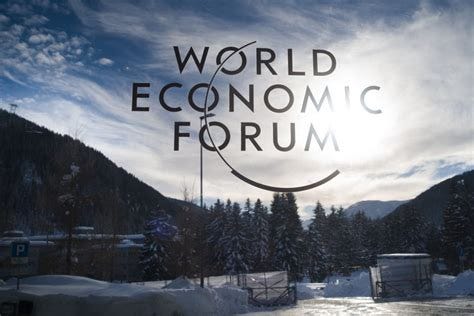By Dmitry Orlov
I interrupt our regularly scheduled programming to bring you a newsflash from the Davos conference that is currently underway. More than 2700 participants are on hand, with nary a single Russian, or a Chinese, or an Iranian, and although delegations from Saudi Arabia and United Arab Emirates are present, their numbers are nowhere near those of their delegations in previous years—in short, this is an economic forum for, of and by the West.
There are plenty of topics for discussion, but the leading one is recession—more specifically, not recession as such but the expectation of its imminent arrival.
Of the 4410 business leaders surveyed by PriceWaterhouseCoopers in October and November of last year, 74% forecast lower global growth during the nearest 12 months. This indicator was the worst since PWC started doing these surveys in 2011. Two out of five business leaders also expressed apprehensions that their company won’t be around ten years hence.
The current Davos conference is interesting in that, for the first time in its history, the West has so blatantly and publicly split from its geopolitical competitors, and that this means that the appellation “World” Economic Forum remains a mere vestige of a bygone era: it no longer represents the entire world.
WEF published a separate survey of chief economists of companies, two-thirds of whom believe that recession is due to arrive during 2023, with 18% of them stating that a decrease in economic activity is “highly probable and inevitable.”
Remarkably, over the past few years Davos has turned into more of a political gripe-fest than an economic confab, but in 2023 it has been forced to return to the unpopular subject of economics; apparently, fear over the fate of their portfolios is outweighing the urge to endlessly harrumph over big bad Russia, horrible Putin, authoritarian China and revisionist Xi. Davos is cutting off a huge part of the world economy from discussing their obviously common problems. This is most clearly characterized by a certain idea that is popping up more and more frequently.
This idea is that the secretive financial rulers of the world—if they ever even existed—have lost their mojo and their secretive levers of control no longer connect to anything real. If they were still in control, than the absolute shrieking madness of contemporary Ukraine would not be allowed to exist. You may believe European politicians to be idiots (it’s hard not to) but not the heads of major industrial concerns, and the fact that the West is sinking into a structural crisis speaks volumes about the disintegration of a single system of governance, at least as the West is concerned.
In the course of the past year, it has become clear that Russia’s role in the global economy is not quite as insignificant as it appeared. With a single hand gesture, the Kremlin can topple not just the energy markets, but many others as well, including food, fertilizer, metals, industrial gases and rare earths.
And when it comes to China, any attempt to disconnect the Chinese cars from the global train risks turning into an act of suicide. This is because for decades the West pumped China full of money, technologies and equipment for manufacturing everything that the West itself found insufficiently profitable or too polluting.
And now the West, awakened as if from a bad dream, suddenly decides to return to the conditions that obtained during the 1950s and 1960s, without energy and metals from Russia and without rare earths or industrial production from China. The current Davos is interesting to observe: here we gave Western captains of industry realistically considering the possibility of surviving without all that and suddenly realizing that there is a number of product and commodity positions which they will not be able to replace—not now, not ever.
There is another very significant factor that worries Western business even more than political and even military mayhem, and that is the rapidly shrinking labor market. All of a sudden, it is turning out that technical competence is far more important in this brave new world than diversity, brimming buckets of genders or even colorful feathers sticking out of one’s derriere. The West, which for several generations now has been pushing key technical personnel out to Southwest Asia, now has no idea how to get it to come back and is entirely unsure that this is even possible.
Here is a simple example: some time ago the Chinese concern FAW lured away Rolls Royce’s leading engineers and specialists, and also their head designer. Now the Chinese have not just modern technologies but also excellent design, and the Chinese are not the least bit shy about paying these people salaries that Western business can no longer afford. And since they can’t afford to compete on salary, inevitably at some point smiling Chinese entrepreneurs with suitcases of money will show up and scoop up any remaining high-technology. This is how the West lost Volvo and Lotus and a whole pile of other leading companies.
In spite of the looming recession thing, 60% of managers do not plan to lay off workers, and 80% do not plan to cut compensation: they are holding on to their technical personnel. Nevertheless, their outflow this year is expected to be quite high. “Power remains in the hands of employees who have the necessary skills,” said Bob Moritz.
[…]
Via https://boosty.to/cluborlov/posts/73cc8e64-f4e3-4836-9bbc-3027016ec153



Dmitry Orlov is one of my heroes. He presents a point of view you don't get anywhere else.
Uplifting and logical analysis - thank you - even though so many here in the UK seem doomed.